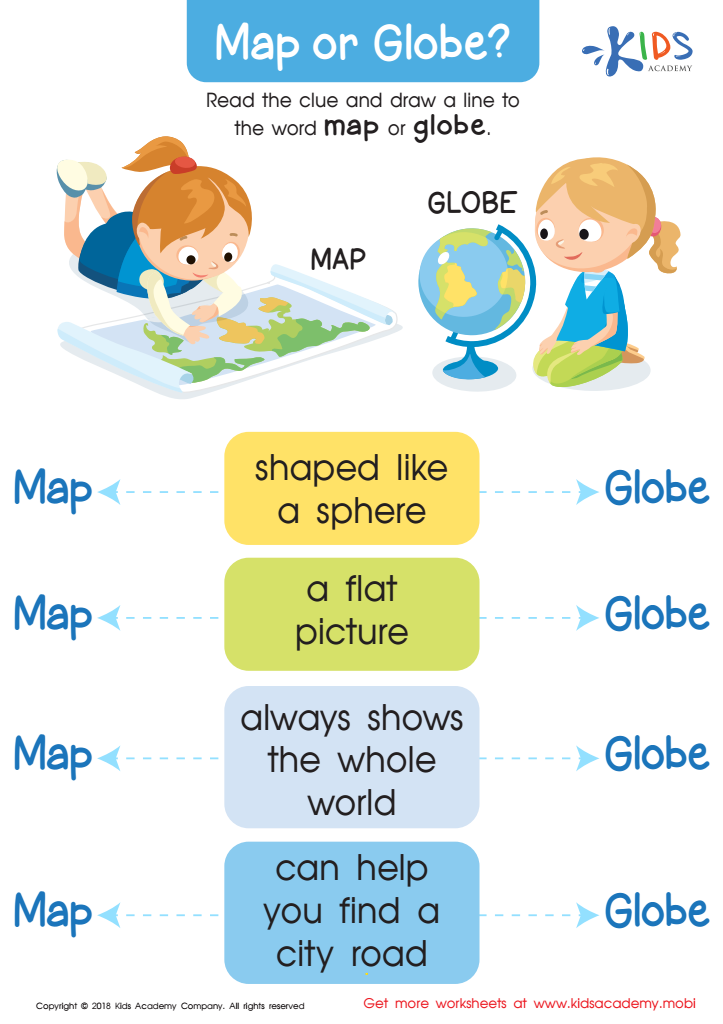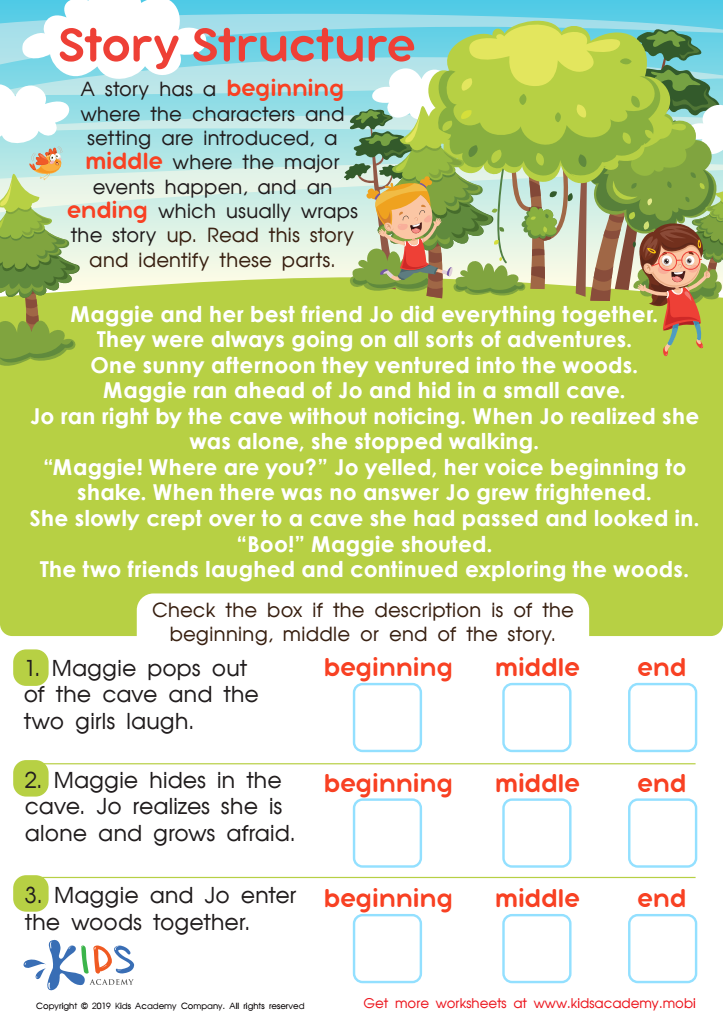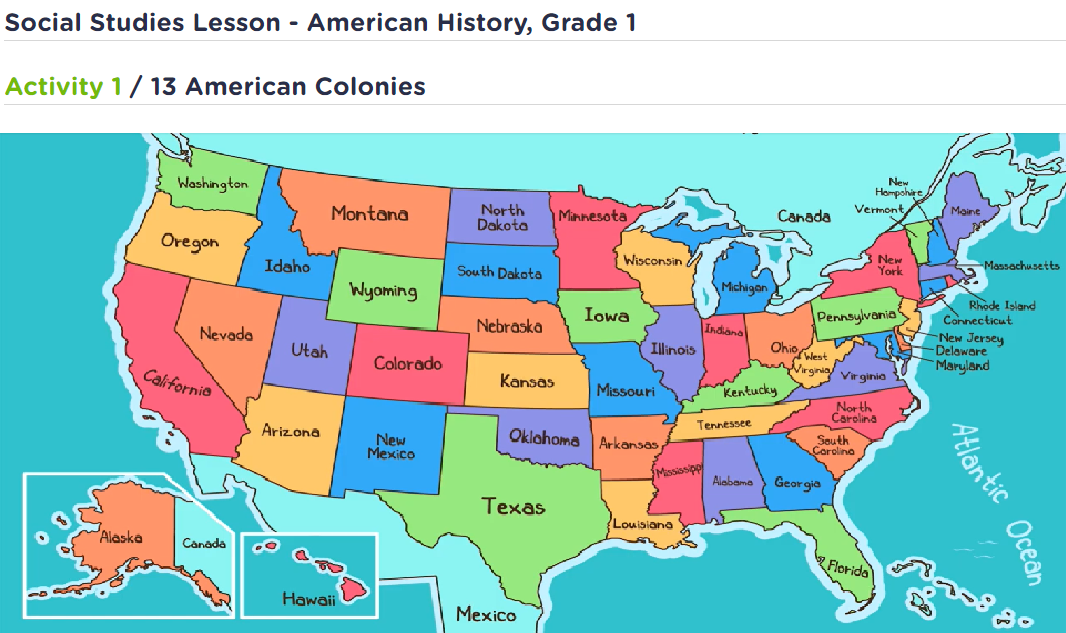Improving critical thinking Worksheets for Ages 3-7
4 filtered results
-
From - To
Enhance your child's cognitive skills with our "Improving Critical Thinking Worksheets" designed for ages 3 to 7. These engaging, age-appropriate worksheets encourage children to think creatively, solve problems, and analyze information through fun activities. Each worksheet is crafted to stimulate curiosity and promote independent thinking, allowing kids to explore concepts in enjoyable ways. Perfect for parents and educators, these resources support crucial developmental milestones while making learning enjoyable. Unlock your child's potential as they engage in playful challenges that enhance their reasoning abilities and strengthen their decision-making skills. Begin the journey of critical thinking today with our printable worksheets!


The Constitution Worksheet


Pollinator Positions Worksheet


Map or Globe? Worksheet


Story Structure Worksheet
Improving critical thinking in children aged 3-7 is vital for their cognitive, emotional, and social development. At this early stage, children are naturally curious, and fostering critical thinking enhances their problem-solving skills, creativity, and reasoning abilities. Teachers and parents play a key role in cultivating these skills by encouraging questioning and exploration.
Exposure to critical thinking activities, such as discussing different perspectives, analyzing simple scenarios, and engaging in hands-on learning, helps children learn to make decisions and understand consequences. This foundation is essential as they encounter increasingly complex situations in school and life.
Additionally, critical thinking nurtures emotional intelligence. As children learn to evaluate their thoughts and feelings, they develop empathy and the ability to communicate effectively with others. These skills are crucial for building relationships and cooperating in group settings.
Investing time in improving critical thinking prepares children for academic success and equips them with life skills necessary for future challenges. It fosters independence and resilience, enabling them to approach problems creatively. Ultimately, when parents and teachers prioritize critical thinking, they lay a strong foundation for lifelong learning and positive developmental outcomes.
 Assign to My Students
Assign to My Students
















